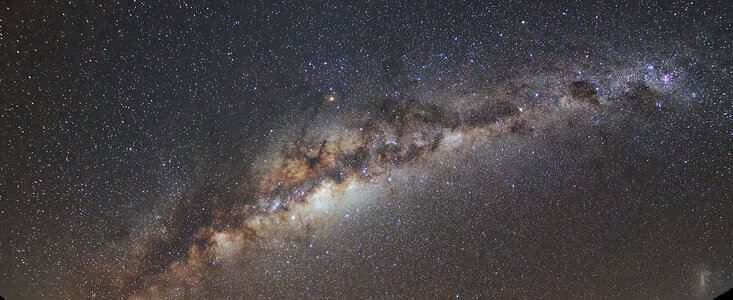Anúncio
Constelações de satélites e o seu impacto na astronomia
19 de Dezembro de 2019
Várias companhias ligadas ao espaço estão a desenvolver planos para colocar constelações de satélites em órbitas terrestres relativamente baixas, para várias efeitos de comunicação. Os recentes lançamentos de múltiplos grupos de satélites do projeto Space X’s Starlink chamaram a atenção do público e dos meios de comunicação social, particularmente devido à alta visibilidade dos satélites logo após o seu lançamento. A comunidade astronómica expressou preocupação sobre o impacto destas constelações na investigação científica.
Em coordenação com a IAU (International Astronomical Union), a AAS (American Astronomical Society) e a RAS (Royal Astronomical Society), o ESO e os outros observatórios estão a avaliar os efeitos que estas constelações de satélites terão em observações astronómicas ópticas e infravermelhas feitas a partir do solo. Estes cálculos irão brevemente ser divulgados ao públicos após revisão independente.
As constelações de satélites terão um impacto nos observatórios que operam no rádio, no milímetro e no submilímetro, incluindo o Atacama Large Millimeter/submillimeter Array (ALMA) e o Atacama Pathfinder Experiment (APEX). O ESO detém o estatuto de observador no Comité de Frequências de Rádio Astronomia (CRAF), um comité independente de especialistas europeus que faz a ligação entre a União Internacional de Comunicações e os administradores responsáveis pela gestão do espectro que pretendem proteger os interesses da rádio astronomia. O ESO encontra-se a seguir este assunto das constelações de satélites com o CRAF, juntamente com os nossos parceiros no ALMA, da América do Norte e do Leste Asiático.
O ESO em coordenação com a AAS e a IAU está a tomar medidas para sensibilizar o público sobre este assunto em fóruns globais tais como o Comité das Nações Unidas para o Uso Pacífico do Espaço Exterior, ao mesmo tempo que se encontra a explorar soluções práticas com as companhias ligadas ao espaço, soluções estas que possam salvaguardar os investimentos de grande escala feitos em infraestruturas de astronomia de vanguarda levada a cabo a partir do solo. O ESO apoia o desenvolvimento de quadros de regulação que possam em última instância garantir a coexistência harmoniosa de avanços tecnológicos altamente promissores em órbitas terrestres baixas com as condições que permitam à humanidade continuar a observar e a compreender o Universo.
Links
Contactos
Andrew Williams
ESO External Relations Officer
Office of the Director General
Tel: +49 89 320 062 78
Email: awilliam@eso.org
Sobre o anúncio
| Id: | ann19062 |

